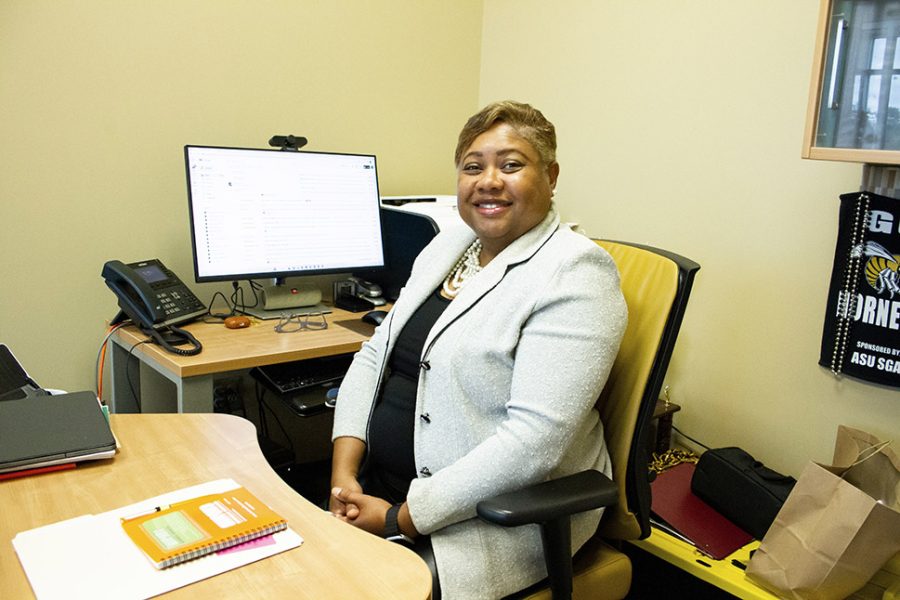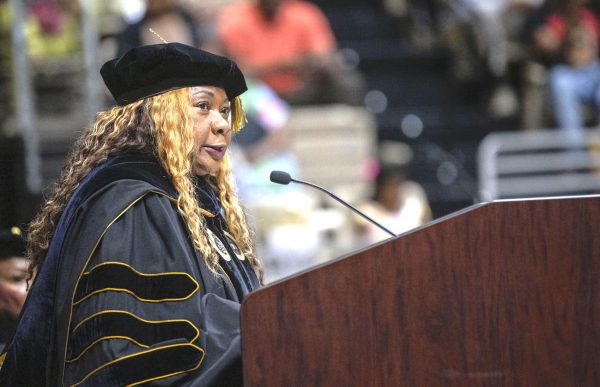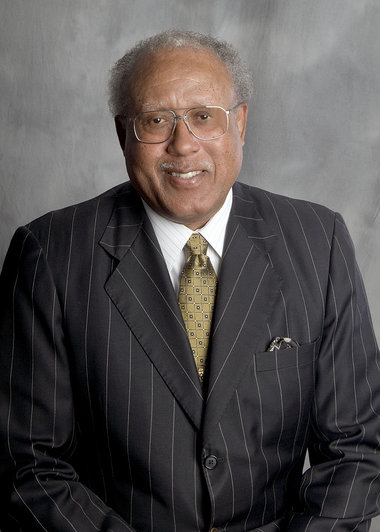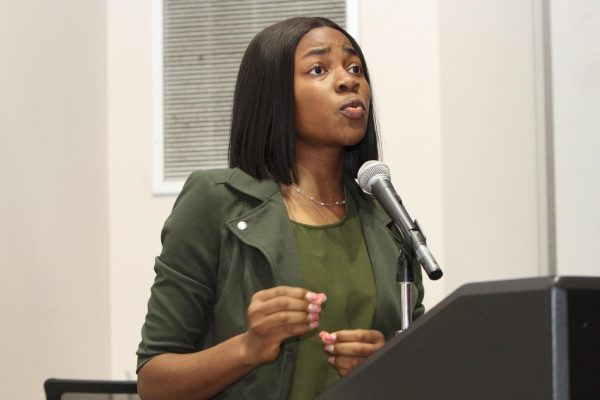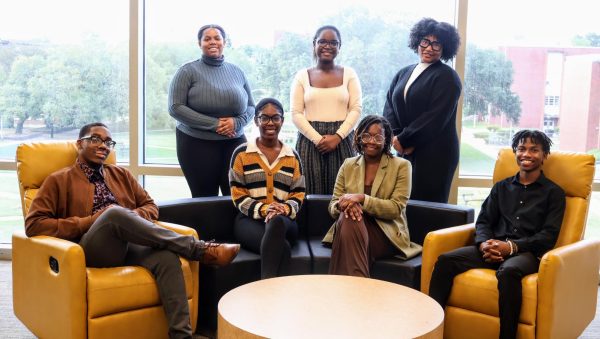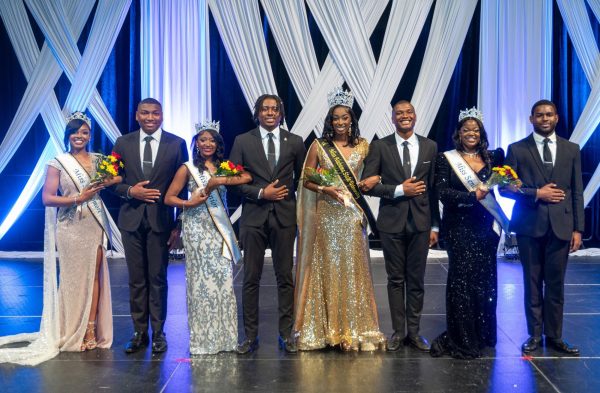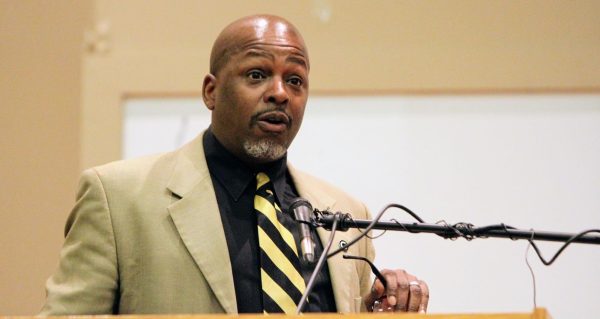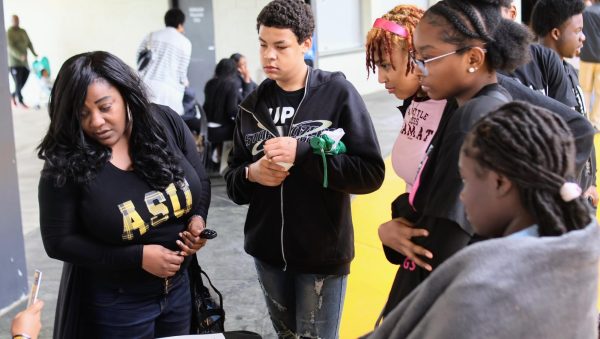Kennedy discusses requirements to join student organizations
Photo by JAELYN STANSBURY/MANAGING EDITOR
Student Life Coordinator Kamela Kennedy, Ed.S., brings clarity regarding the processes of becoming an official student organization.
January 28, 2023
One of the most anticipated student activities and events of the spring semester at Alabama State University is the revelation of new members who have joined student organizations, and while many campus organizations require that a student is of sophomore status before joining, there are some that allow students to join as a freshman.
Many universities categorize their organizations into seven areas: academic, educational, community service, media and publication. There are also more categories such as political or multicultural, recreation and sports, student government and religious or spiritual.
Kamela Kennedy, Ed.S., coordinator of student life at the university, supervises all student organizations on the campus and serves as the adviser for the National Pan-Hellenic Council (NPHC) (the governing body for the ‘Divine Nine’ organizations) and the University Greek Council (UGC) (a governing body for greek-letter organizations that are not affiliated with the ‘Divine Nine’) a position she has held for 21 years.
According to Kennedy, most student organizations on the campus are not affiliated with the NPHC or the UGC, but they must have some type of oversight.
“The university has placed stipulations on how student organizations must become official, and all students who desire to be a part of a student organization must possess a 2.5 grade point average,” Kennedy said.
However, the organizations that many students anticipate becoming a member of are the Greek-letter organizations. Officially referred to as fraternities and sororities, they are primarily social organizations that exist at almost every university or college, in every state, with the goal of encouraging its members to achieve their maximum social and academic potential. According to Kennedy, “with “Divine Nine” organizations, there are considerably more academic and financial responsibilities for them to consider.”
For any students wishing to join a student organization, Kennedy wants them to be aware that there are specific standards that must be upheld, such as the university’s 2.5 GPA requirements. However, he says that “over the past couple of years, a lot of our sororities and fraternities have raised the grade point average to a 2.75,” Kennedy said. “So far, this has been the only change, though the grade point average may rise in the coming years.”
She continued to list the qualifications.
“Our students have to go through three areas in order to clear the Office of Student Life. Number one is our grade point average (GPA), and we align our GPA with whatever the national requirement is for that particular sorority or fraternity. Then once we establish that you have the grade point average, you must be at sophomore status to be eligible. The third requirement is judicial affairs, where a student’s citizenship is reviewed. You must be clear of any pending judicial cases, or any cases from the past. You also have to have a zero balance with the university, and that’s because you’re here for academics first.”
Once a student passes these requirements, there are other considerations that are examined by the specific fraternity or sorority.
“Community service is a major component of consideration to become an aspirant. That is one of the principles of many of the organizations’ pragmatic thrust.”
No financial aid support is offered for Greek-letter organizations. Financial aid assists with a student’s academic pursuit, while Greek life is an extracurricular activity pursuit. This is why having a zero balance with the university is imperative.
Kennedy believes that the university should utilize a holistic approach concerning membership intake.
“We need assets, not liabilities, for members,” she said. “The university conducts background checks on each individual member and university official. I do believe they’re on the right track. I just think that more and more continuous training for leadership needs to take place.”
In the 1980s and 1990s, it took weeks, and for some, as long as a month and a half for a student to thoroughly learn about the Greek organization they were interested in joining. According to Kennedy, it inspires a greater love and appreciation for that sorority or fraternity.
All Greek-letter organizations host anti-hazing clearance sessions.
“We have to have those sessions because back in the day, there was not a law for hazing,” Kennedy said. “But in current times, there are laws for hazing, so we have to let the students know what those laws are. The university has a responsibility to let them know what they consist of so they won’t be caught up in wrongful behavior.”
She hopes these sessions will inform students on how to react, and govern themselves in the case of any liability issues.
Lastly, Kennedy believes that students should work hard to carry on the legacy that started over 100 years ago and do more to incorporate those original ideas of love, hard work and companionship.


